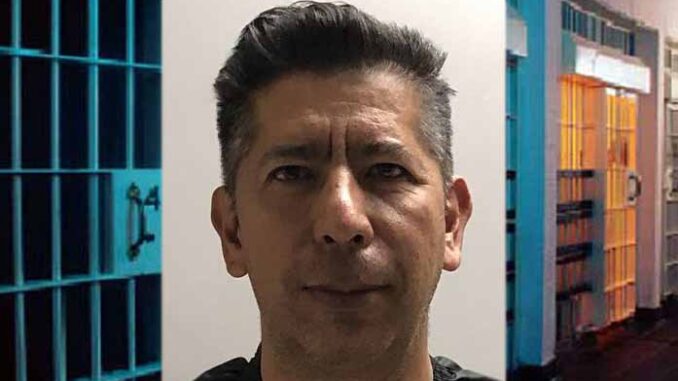
A grand jury indicted Juan Manuel Medina last December on two counts of molestation of a child under the age of 15. But those charges will be dismissed in 15 days if the Cochise County Attorney’s Office does not secure a new grand jury indictment by that time, a judge ruled Friday.
Judge Laura Cardinal issued the ruling in response to a defense motion for remand, or reconsideration, by a new county grand jury. The charges in the first indictment will be replaced by any charges brought forth by the new grand jury, or the case would be dismissed if there is no new indictment.
Medina was indicted on both counts by a true bill vote of 14 to 0; at least 9 jurors must vote for a true bill to include a charge in an indictment. Cynthia Brubaker, Medina’s court-appointed attorney, argued two errors occurred during the Dec. 9, 2021 grand jury presentation which led to Medina’s indictment.
At the end of a motion hearing on March 11, Cardinal agreed that each of the two issues required remand to a new grand jury, even if the other issue was not considered.
One issue involved a question posed to Douglas Det. Malidda Claudio, who conducted the investigation into Medina’s alleged sexual misconduct activity. The detective was the only witness called by the Cochise County Attorney’s Office to testify to the grand jury.
During Claudio’s testimony, one of the grand jurors asked. “have the police spoken to [Medina] about this at length?” The detective replied, “I have tried to talk to him but he didn’t want to talk.”
When Claudio finished testifying, Deputy County Attorney Terisha Driggs informed the jurors that a suspect’s exercise of their right to remain silent “should not be considered as evidence that the suspect is guilty.”
Brubaker, however, argued that the detective’s answer “left the impression or belief” that Medina did not talk with the police “because he had something to hide or because he was guilty.”
Cardinal agreed, ruling it was possible the grand jurors could have inferred Medina’s refusal to speak with Claudio was somehow indicative of his guilt, despite the after-the-fact admonition provided by Driggs.
The better answer to the juror’s question would have been a simple “no,” Cardinal told the detective. Such a reply would have avoided the need for Driggs to point out Medina had invoked his constitutional right.
Taking the case back to a county grand jury will ensure the public’s faith in the secretive process, Cardinal ruled. It was also the judge’s concern for the public’s assurance in the “propriety and confidence” of the grand jury system that Cardinal cited in ruling in Medina’s favor on the second defense argument – that one of the 14 grand jurors should have been excused due to a familial association with Detective Claudio.
According to court records, Grand Juror 13 immediately made it known his wife is connected by blood, but not marriage, to the detective’s grand-niece. Driggs questioned the juror at the time about the indirect link, and the juror stated he could be fair and impartial.
The defense believed the prosecutor needed to have inquired further into the relationship to ensure no conflict existed. Otherwise, Juror 13 should have been excused from considering the Medina presentation, Brubaker argued.
Driggs countered that while Juror 13’s wife had a distant consanguinity (by blood) kinship tie to Claudio’s grand-niece, that kinship does not apply to the juror under Arizona law. Even if there had been an affinity (by marriage) kinship, it too would have applied to the juror’s wife and not the juror, the prosecutor argued.
In her ruling, Cardinal noted that Douglas is a small community in a small county, making it all the more likely for potential conflicts to arise between grand jurors and the various defendants, attorneys, and witnesses. Even if Juror 13’s relationship with Claudio was not considered a legal or familial one under court rules, his involvement in the grand jury presentation is grounds for remand, as it created an appearance of impropriety, the judge noted.
Grand juries in Cochise County meet on Thursdays, meaning Driggs has two opportunities to re-present the matter before the 15-day deadline imposed by Cardinal at the March 11 hearing.
Medina has remained in the Cochise County jail since his Dec. 7 arrest. Cardinal previously ruled there is no condition or conditions of release which would guarantee Medina appears for his hearings and trial while also protecting the safety of the victim and the community.
READ MORE ABOUT MEDINA’S CASE HERE

